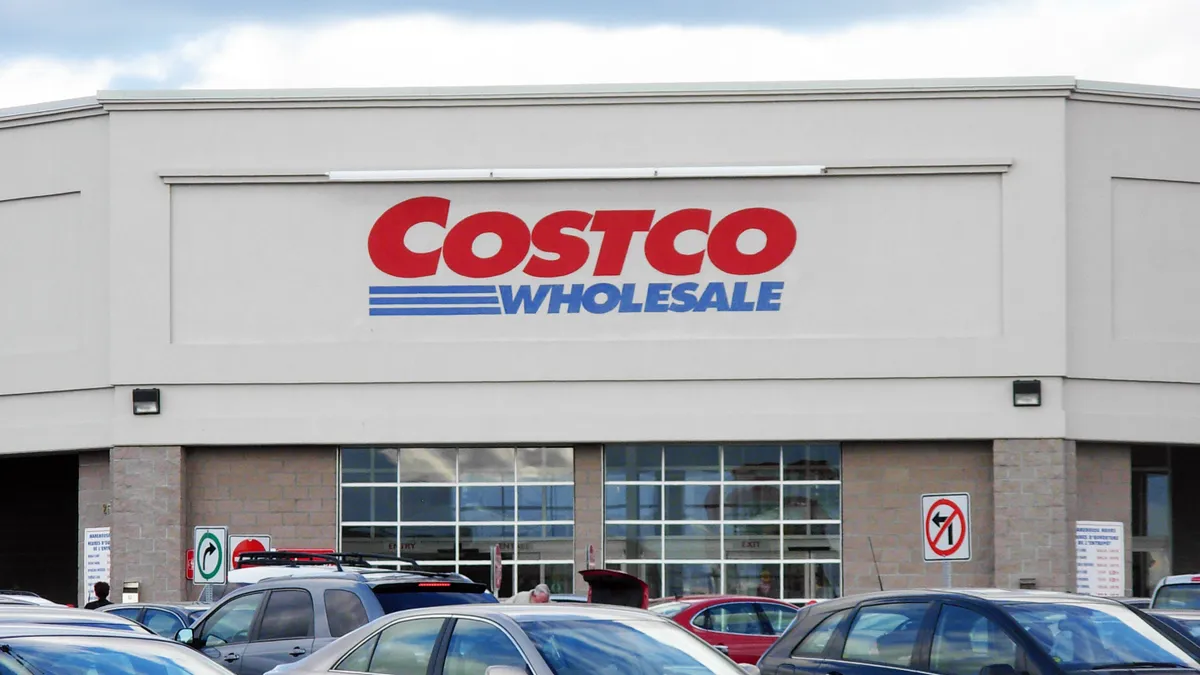Dive Brief:
- Costco's Kirkland Signature private label generates about a quarter of the wholesaler's $118.7 billion in annual sales, a percentage company executives expect to grow, according to The Wall Street Journal.
- Kirkland Signature’s success is putting increasing pressure on national brands, which are having trouble maintaining position on Costco shelves. Brands including Kind, Planters, Kimberly-Clark's Huggies and P&G's Pampers have been edged out at the warehouse store by the private label, according to The Journal.
- The Journal reports that LaunchPad Inc. founder Jeremy Smith, who works with food brands seeking Costco shelf space, tells his clients: “Assume a ‘KS’ version of your product will come into the market.” Smith suggested that savvy manufacturers should offer Costco new versions of their product, revamp packaging, or invest in marketing to show off the brand's strengths in order to remain competitive.
Dive Insight:
Costco’s dominance of the club sector can be partly attributed to its extraordinary SKU-level productivity, including the way it leverages its Kirkland Signature private label as part of its product mix. The retailer remains laser-focused on carrying only the highest velocity and most productive items while maintaining an aggressive stance on pricing. It makes no qualms about replacing national brands with its well-regarded Kirkland Signature brand, which over the years has fostered almost a cult-like following.
For suppliers, getting — and staying — on Costco shelves is challenging. Having best-sellers at the lowest possible price and offering new innovative products with unique ingredients, features or functions are key to winning coveted space. Even then, however, national brands are in constant danger of losing space as Kirkland Signature composes a growing portion of Costco’s already highly-edited 3,800-SKU assortment. Co-branding presents a viable alternative to losing shelf space or being knocked off the shelf altogether.
The demand Costco places on suppliers is just one example illustrating the power that retailers hold these days. Across the food sector, CPG companies increasingly are being pressured by retailers, especially when it comes to lowering prices. Walmart has been particularly aggressive with price cuts lately, putting the squeeze on suppliers. But it’s not just Walmart. Conventional chains like Kroger and even small chains and specialty stores like Sprouts Farmers Market have become increasingly price promotional of late, pressuring beleaguered suppliers to lower their prices.
Competitive retailers should also take notice of how Costco leverages its buying power and best-selling Kirkland Signature brand to pressure manufacturers to bring differentiated products to its club stores — items that can’t be purchased anywhere else. This certainly provides the club with a competitive advantage — one not typically replicable by Amazon. As Morgan Stanley analyst Simeon Gutman told The Journal, “If you have something unique, it’s un-Amazonable.” That’s a pretty big deal these days.







